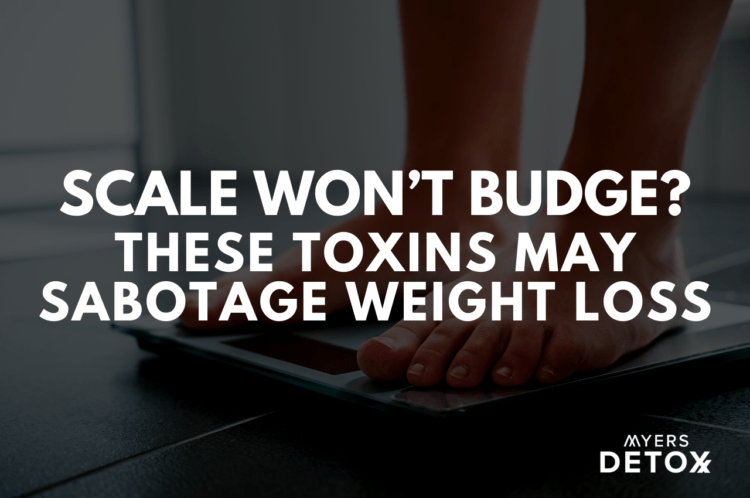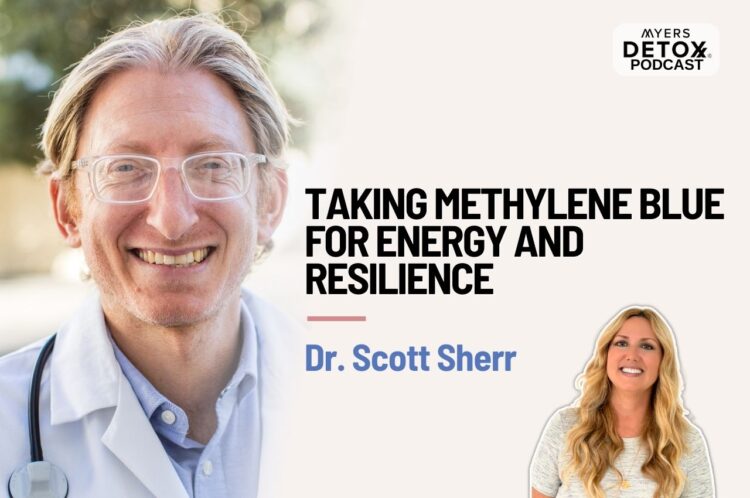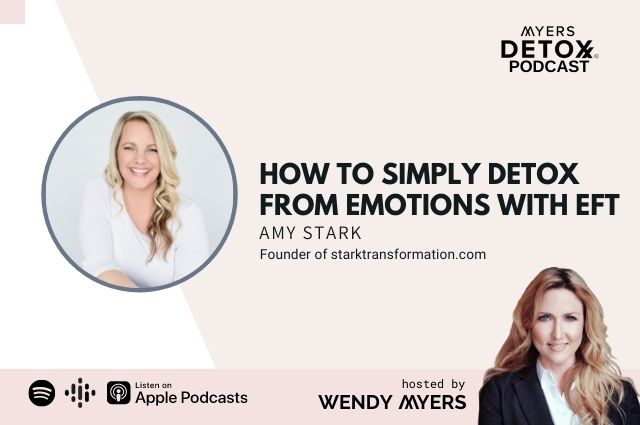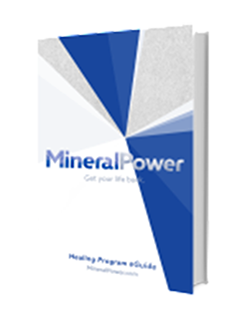Scale Won’t Budge? These Toxins May Sabotage Weight Loss

Maintaining a healthy weight has become one of the most significant health challenges that many people face today. So many try and fail over and over. I’m here to tell you it’s not your fault. Biology always overcomes willpower when it comes to weight loss. Allow me to explain.
Many people, including myself, have done all the right things and the scale didn’t budge. This article explains the role of toxins like heavy metals and chemicals in resistant weight loss.
If you’re eating less and exercising more and that isn’t working for you…and you’re ready to throw in the towel…keep reading.
I’m not just talking about feeling good in a bathing suit but keeping your body healthy enough to stave off chronic illness and feel your best. So why can’t you reach your weight loss goals? What stands between you and your ideal body weight?
In this article, you’ll learn:
- Do you need to diet or detox to lose weight?
- Why the scale won’t budge (when you’re doing everything right)
- How toxins and heavy metals inhibit weight loss (there are a lot of ways)
- What obesogens are, and where they’re hiding in plain sight
- The essential step you can take to prime your body for weight loss
Why The Scale Won’t Budge
A stalled out scale (called plateau) is one of the most frustrating things that can happen for a dieter. You’re doing everything right; watching your calorie intake, going to bed hungry, drinking tons of water, exercising ’til you drop, getting enough rest, even taking expensive fat-burning supplements…yet the scale won’t budge.
So what gives? Why can’t you break through that weight loss plateau and reach your goal weight once and for all? You’re being told you need to simply eat less and exercise more.
Simply put, it’s not about calories in – calories out. The old paradigm around calories in-calories out states that if you burn more calories than you consume, the result will be weight loss. On the surface, this makes a lot of sense. And it’s largely true. But this is not the complete answer.
If you want to burn away fat, then you need to put your body into a calorie deficit so that it has an opportunity to tap into your fat stores. But here’s the deal; there are many factors that go into getting your body in fat-burning mode than the number of calories you consume.
Your fat tissue doesn’t just sit by idly in your body, waiting to be burned for fuel. Far from it — this tissue is metabolically active and is affected by your hormonal systems as well as the types of foods, heavy metals and chemicals that you consume and absorb. Additionally, fat actively makes estrogen, which tells your body to store fat.
In fact, one of the most significant impediments to weight loss has nothing to do with calorie intake; it has to do with the amount of toxins you take in on a daily basis. That’s right, the reason the scale isn’t moving might be due to toxic overload in your body[1].
How Do Toxins Prevent Weight loss?
A specific type of toxin, known as obesogens, can inhibit weight loss in a few different ways.
Obesogens are chemicals that directly or indirectly promote weight gain and increase the risk of obesity. They do this by disrupting metabolic, hormonal, and developmental processes in your body.
Common chemical compounds that have been labeled as obesogens include nicotine, MSG (aka yeast extract and hydrolyzed soy protein), arsenic, atrazine, DDT, parabens, phthalates, BPA, insecticides (like glyphosate) and pesticides.
As these toxins have been released and increased in our environment, you can see a clear correlation between this and the increase in rates of obesity. See this chart.

Let’s take a look at exactly how these obesity-causing chemicals can inhibit your weight loss efforts.
Obesogens Increase the Number Of Fat Cells In Your Body
Obesogenic chemicals can directly increase the number of fat cells that you have in your body. They do this by activating something called the PP(R) gamma receptor. The PP(R) gamma receptor is a regulator of fat cell development in your body, and its activation can change the programming of your fat cells.
For example, if a stem cell is in a pre-development stage and the PP(R) gamma receptor is activated the stem cell is likely to become a fat cell, instead of a liver cell, kidney cell, bone cell, or whatever else your body had destined that cell to mature into.
You see, stem cells have the potential to develop into many different types of cells. However, in the presence of the PP(R) gamma receptor, the likelihood that they’ll develop into a fat cell increases significantly.
Furthermore, if the cell in question was already in the developmental stage of becoming a fat cell, the PP(R) gamma receptor will increase the amount of fat inside the cell, thus making your fat cells larger[2].
The result? Your body develops a greater number of larger fat cells. Not quite a recipe for weight loss.
Obesogens Disrupt Hormones
Many obesogenic chemicals are known as Endocrine Disrupting Chemicals, or EDC’s.
EDC’s are capable of blocking or mimicking the activity of natural hormones in your body. How do they go about doing this?
The way that your hormones work is similar to a lock and key system. Your cells have receptors that are specifically designed for certain hormones (just like locks are designed for specific keys). The hormones, therefore, are the keys that can dock to these receptors and initiate a cascade of activity.
Endocrine Disrupting Chemicals come in and create havoc because they are similar in structure to your hormones. Therefore, they can dock on the same receptors and initiate activity, just like your hormones would. The problem is, they are not part of your natural hormonal system.
These endogenous compounds come in and throw the homeostasis of your tightly regulated hormonal system out of whack, and the result can range from resistant weight loss, obesity, reproductive harm and infertility, lowered hormone production and more[3][4].
One way that ECD’s may directly affect weight gain is through their impact on the hormone insulin. Research shows that exposure to EDC’s can promote insulin resistance, which in turn can increase the risk for obesity as well as other metabolic conditions marked by increased levels of uncontrolled blood sugar[5].
Put simply, insulin is a hormone that signals to your body to store fat. When our blood sugar is high, insulin is high, and when insulin is high and can’t get into cells (insulin resistance), we gain weight.
Obesogens are Stored in Your Fat Cells As a Protective Mechanism
Many of the toxins that you ingest either through oral consumption or through absorption in your skin end up stored in your fat cells. The reason for this is that fat cells are a safe place to sequester away potentially harmful compounds. When toxins are stored away in your fat cells, they can’t damage the vital organs in your body. Your body is innately intelligent in this way.
But here’s the issue; the more toxins you take in, the more fat cells you need to sequester them away[6]. Your body is forced to retain fat cells to use them as toxin storage receptacles. It’s one of the reasons people have a hard time losing that last 15 pounds.
Therefore, if you’re eating a low-calorie diet, exercising daily, getting plenty of rest, and still not losing weight, it could be that toxins are making their way into your body, causing your fat cells to stay put in order to protect you from the harmful effects of toxins.
In the case of obesogenic toxins, a vicious cycle is instigated as these compounds not only have an affinity for fat cells, but they also increase the number and size of fat cells in your body. Therefore, they increase your body’s capacity for their own retention[7].
How do Obesogens get in my body?
Obesogens can be found in the air, food and water, like many toxins and heavy metals. Whether you realize it or not, obesogens are hiding in some of your favorite everyday products, including:
- Laundry detergent
- Dish soap
- Shampoo and condition
- Body lotion
- Dryer sheets
- Aftershave
- Body soap
- Perfume/fragrance
- Candles
- Air fresheners
- Perfume
- Plastic containers
- Foods sprayed with pesticides
- The list goes on and on
Chemicals to look out for include:
- BPA in plastics
- Nicotine
- MSG (yeast extract)
- Arsenic
- Parabens (preservatives in beauty products)
- Fragrance (contain phthalates)
- Pesticides, herbicides, insecticides
Taking measures like investing in natural products is an excellent step in reducing your obesogen exposure. However, these fattening compounds are hiding everywhere in your environment, and it would be near impossible to avoid them altogether. That’s where detoxification comes in.
Your body is set up to clear toxins that you come into contact with. Issues with toxic overload happen when organs like your liver and kidney are overwhelmed, and they can’t do their jobs properly. Therefore, in addition to focusing on natural products, giving your organs of detox some love with a cleanse is crucial for eliminating obesogenic compounds and setting yourself up for weight loss.
Do you need to Diet or Detox?
What is more important? Well – both. No matter how much you restrict calories, eventually toxins will catch up to you. While diet and calorie restriction is a critical factor in weight loss success, detox may have a more important role in weight loss long term.
When “dieting,” the typical approach is to cut calories and focus on specific foods that are meant to promote weight loss. This can vary greatly. For instance, some people do better with low-carb dieting, cutting back on carbohydrates while focusing on fat and protein. Others do better on a vegan diet.
Others assert that fasting or cutting back on calories is key. But the more you fast and starve yourself, the less nutrition you enjoy, so there is a catch-22 to calorie restriction.
While you may find instant success with any of these dietary approaches, you can only go so far with fasting and calorie restriction or eliminating an entire food group (fat, carbs or protein) before it harms you.
Dieting puts the primary focus on calories in-calories out. As mentioned previously, this paradigm is far too simplistic to work with the complexity of the human body.
Detoxing, on the other hand, helps remove the many roadblocks that cause resistant weight loss. This includes stem cell turning into fat cells, fat cell size increases, fat storage, optimizing liver function, improving blood sugar control and balancing hormones, including sex, stress and thyroid hormones. THIS is the long term solution. But needs to be done of course with a sensible diet.
Detox works on optimizing your body’s ability to process and metabolize nutrients and clear toxins. Detox allows you to finally tap into those pesky fat stores and release fat once and for all. By now, it’s probably clear why detoxing chemicals like obesogens is crucial for weight loss, but there’s more.
In the process of detoxification, you’re giving your liver a boost, which allows it to do its job more efficiently.
Your liver is crucial for the balance of hormones in your body. In fact, one of the main functions of your liver is to metabolize and recycle hormones like estrogen. When your liver is weak, your hormone levels will initially increase and then decline as the hormones produced by the adrenals, ovaries cannot be metabolized by the liver.
They essentially become backed up and remain at high levels in the blood. The glands then get the message to reduce their production. This is a protective feedback loop that your body uses to safeguard you against hormonal overload [8]. But then your thyroid slows down your metabolism. Your testosterone you need to build muscle reduces, and so on.
The problem is, proper endocrine function is crucial for weight loss. These hormones work synergistically in a myriad of ways to promote metabolism, blood sugar control, nutrient utilization, and energy production.
Some endocrine hormones involved in weight management include[9]:
- Thyroid hormone — secreted from your thyroid and controls metabolism. Too little slows metabolism. Mercury impacts the thyroid and prevents production and conversion of thyroid hormones.
- Cortisol — secreted from your adrenal glands and regulates blood sugar. Too much causes belly fat. Metals poison hydroxylase enzymes needed to make hormones like cortisol.
- Growth hormone — secreted from your pituitary gland and affects fat distribution. Too little causes poor muscle tone needed to burn fat.
- Insulin — secreted from your pancreas to control blood sugar and stimulate the metabolism of glucose, protein, and fat. Too much causes fat storage. Metals like mercury (10), cadmium (11) and arsenic (12) poison the body’s ability to make and metabolize insulin.
As you can see, if these hormones are not properly functioning, it can become a set up for weight gain and weight loss resistance. And toxins like heavy metals and chemicals affect them ALL.
This is why I cannot stress enough the importance of detox in addition to diet and exercise, especially if you feel like you are doing everything right and not making progress.
Kick Start Your Weight Loss With A 14-Day Detox
There are hundreds, if not thousands, of detox plans and supplements out there. So, where do you begin?
When it comes to detoxification, there are right and wrong ways to go about it. Detox should be a gentle process where your body is nourished and guided to release toxic chemicals. The goal is to get the body’s detox organs and mechanisms optimized.
In my years of working with clients, I went through a lot of trial and error to figure out which supplements and protocols work best. In the process, I was able to create targeted supplements and practices that work efficiently and effectively to help people optimize their natural detoxification processes.
I’ve put all of this information together in a 14-Day Detox Weight Loss Challenge that walks you through priming your body for weight loss. This weight loss challenge includes suggested supplements, a 14-day weight loss meal plan, a detox cookbook (paleo, vegan and vegetarian options), and more.
You’ll be guided, step by step, to get your body back on track and release toxic chemicals that have been holding you back from your goal weight.
Takeaway: Toxic Compounds Inhibit Weight Loss
If you’ve been struggling with your weight for years, trying every new approach in the book, it’s time to try something new. The weight loss industry will have you believe that there’s always a new trick around the corner that will answer all your weight loss needs.
Try this new fad diet, cut out this macronutrient, begin this workout protocol, start taking this fat-burning supplement, and so the billion dollar propaganda machine churns on and on. Don’t buy into the hype.
The reality is that your weight loss struggles have some connection to what you’re eating and how you’re exercising, but that is not even close to the whole picture.
Toxic overload is the hidden culprit behind the majority of the weight loss challenges my clients struggle with. As soon as you clear your body of toxins that impede fat-burning, your weight loss journey can begin. Don’t get me wrong, this is not an overnight process.
Knowledge is power. And armed with this knowledge that detox is more powerful than diet, you can stop blaming yourself, your body, your age and your genes. And get on track to do the work that’s needed to finally lose the weight.
Now you clearly understand why so many people around the world are overweight and the numbers are growing. It’s not just the food they are eating or the amount of food, but the toxins in the food and the environment.
Looking for some more guidance?
Join me in a 14-day weight loss and mind-body detox challenge!
It’s a mind-body detox that gives you the tools, resources, and support you need to regain control of your health.
Over 14-days I guide you through the exact process I use to reduce stress, sleep better, boost energy, emotionally detox, and lose weight!
Click Here for References+
- https://www.niehs.nih.gov/health/topics/conditions/obesity/obesogens/index.cfm
- Holtcamp, Wendee. “Obesogens: an environmental link to obesity.” (2012): a62-a68.
- Rehman, Saba, et al. “Endocrine disrupting chemicals and impact on male reproductive health.” Translational andrology and urology 7.3 (2018): 490.
- Tang‐Péronard, Jeanett Louise, et al. “Endocrine‐disrupting chemicals and obesity development in humans: a review.” Obesity Reviews 12.8 (2011): 622-636.
- Rotondo, Eleonora, and Francesco Chiarelli. “Endocrine-Disrupting Chemicals and Insulin Resistance in Children.” Biomedicines 8.6 (2020): 137.
- La Merrill, Michele, et al. “Toxicological function of adipose tissue: focus on persistent organic pollutants.” Environmental health perspectives 121.2 (2013): 162-169.
- Darbre, Philippa D. “Endocrine disruptors and obesity.” Current obesity reports 6.1 (2017): 18-27.
- Genes, S. G. “Role of the liver in hormone metabolism and in the regulation of their content in the blood.” Arkhiv patologii 39.6 (1977): 74-80.
- https://www.hopkinsmedicine.org/health/conditions-and-diseases/hormones-and-the-endocrine-system
- Chen, CW, CY Yang, et al. “Inorganic Mercury Causes Pancreatic Beta-cell Death via the Oxidative Stress-induced Apoptotic and Necrotic Pathways.” Toxicology and Applied Pharmacology 243.3 (2010): 323-31.National Center for Biotechnology Information. U.S. National Library of Medicine, 15 Mar. 2010. Web. 15 Mar. 2015. http://www.ncbi.nlm.nih.gov/pubmed/20006636
- Edwards, Joshua R., and Walter C. Prozialeck. “Cadmium, Diabetes and Chronic Kidney Disease.” Toxicology and applied pharmacology 238.3 (2009): 289–293. PMC. Web. 15 Mar. 2015. http://www.ncbi.nlm.nih.gov/pmc/articles/PMC2709710/
- Navas-Acien A, Silbergeld EK, Pastor-Barriuso R, Guallar E. Arsenic Exposure and Prevalence of Type 2 Diabetes in US Adults.JAMA. 2008;300(7):814-822. http://jama.jamanetwork.com/article.aspx?articleid=182413









